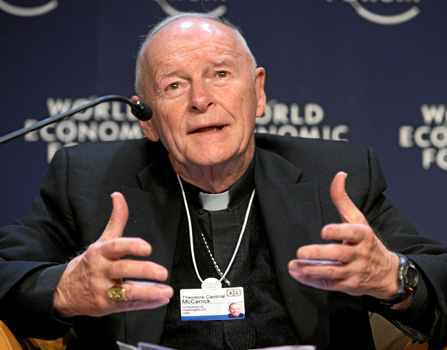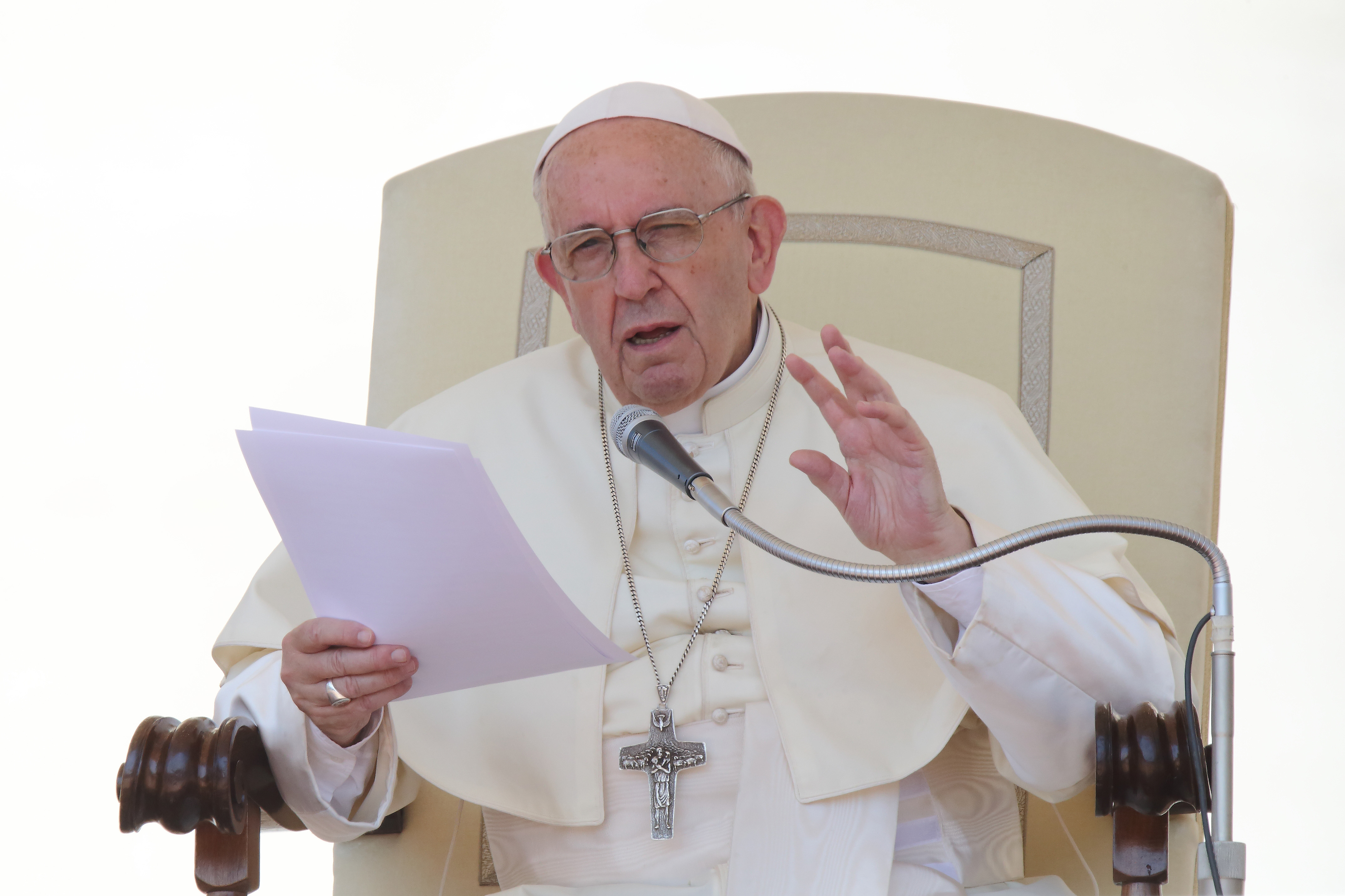Pope Francis says the anti-immigrant policies of populist governments will not solve the world’s migrants crisis and has given his full backing to a United States’ bishops’ statement that separating children from their parents is “immoral”.
“It’s not easy, but populism is not the solution,” Francis says in an interview with Reuters, his first interview with an English-language media outlet.
The Pope said he stood behind the bishops in the United States on the question of the US-Mexico border, where President Donald Trump’s administration decision to strictly enforce the country’s immigration laws has seen children taken away from their families.
In a 13 June statement the President of the Bishops’ Conference, Cardinal Daniel DiNardo, said that “separating babies from their mothers is not the answer and is immoral”.
The Pope also spoke about the migrant crisis in Europe. In a thinly veiled criticism of the decision by Matteo Salvini, Italy’s interior minister, to close the country’s ports to a boat from North Africa that was carrying 629 migrants, including 7 pregnant women and 11 babies, Francis said that when refugees are not welcomed, supported and integrated into a country they end up in the hands of human traffickers.
“Let's look at history. Europe was made by immigration. Let's look at the news. In Europe there is a great demographic winter. It will become empty. The current story is that there are people coming for help: I believe that we must not reject people who arrive, we must receive, help and arrange, accompany and then see where to put them, but throughout Europe.”
Salvini, leader of the right-wing Northern League, has been making all the political running as a key figure in Italy’s new populist coalition government. Before the new government took office Italy had welcomed in around 700,000 new arrivals.
“Italy and Greece have been brave and generous in welcoming these people,” the Pope explained. “In the Middle East, Turkey was also courageous, Lebanon, Jordan. At a certain point, let's all do it, right? People are running away from war or hunger.”
The cure to the problem, the Pope said, is not for governments to create a “psychosis” about migrants, but to study the problems closely. Francis said thousands are fleeing Africa because the continent has been exploited, something he has discussed with Angela Merkel, Germany’s Chancellor.
“I talked about this with Merkel and she agrees that we have to invest in Africa, but investing in a neat way and by giving sources of work, not going there to exploit,” he said.
African countries might have been given independence by former colonial powers, Francis explained, but there are still injustices going on in the countries which in turn result in mass departures. The Pope added that Europe must start with “education and investment” in Africa to target the root causes of migration.
Elsewhere in the interview, Francis discussed the need to give more roles to women in the Church. The Pope said there was a woman he had considered appointing to run the new Vatican communications secretariat but she had too many other commitments.
He explained that he had to “fight” to appoint the first female deputy director of the Holy See Press Office and that he would not have trouble with appointing a women to lead the Secretariat for the Economy.
“It is true that we are too slow [on women], but we must move forward,” the Pope said.
On China, Francis rejected the idea he is at risk of selling out Chinese Catholics loyal to the Vatican, and Francis said that talks to resolve a dispute over the appointment of bishops in China – the major obstacle to resuming diplomatic ties – were “at a good point”.
He said that Cardinal Joseph Zen, the retired Bishop of Hong Kong, and critic of a Vatican-China deal is “a good man”, but a “little scared”.
Dialogue, the Pope added, is a risk but he prefers taking a risk than opting for the “sure defeat” that results from no dialogue at all.
When asked about internal opposition to him in the Church, Francis said he was praying for those who said “nasty things” about him. And on the cardinals who have publicly challenged him with a series of questions – known as dubia – on his teaching on marriage and the family, he struck a merciful note.
The Pope said he had learnt about the dubia move “from the newspapers ... a way of doing things that is, let’s say, not ecclesial, but we all make mistakes”.
The OnePeterFive website contacted Cardinal Walter Brandmüller, one of the four dubia cardinals, asking him for comment. Cardinal Brandmüller responded: “The dubia were first published after – I think it was two months – after the Pope did not even confirm their reception. It is very clear that we wrote directly to the Pope and at the same time to the Congregation for the Faith. What should be left that is unclear here?”
Finally, Francis called for a future where the Church is open and is “on the street”, and showing God’s presence to the world. He repeated the line he gave during a speech to the cardinals before his election. In the Book of Revelation, he said, Jesus stands at the door at knocks.
“But today [for the Church] I believe that the Lord so often knocks on the door so we can let him out into the open.”



 Loading ...
Loading ...